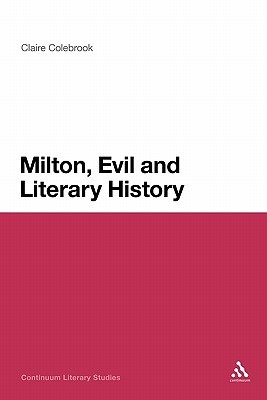
- We will send in 10–14 business days.
- Author: Claire Colebrook
- Publisher: CONTINNUUM 3PL
- ISBN-10: 1441193731
- ISBN-13: 9781441193735
- Format: 15.6 x 23.4 x 0.9 cm, minkšti viršeliai
- Language: English
- SAVE -10% with code: EXTRA
Reviews
Description
Using the work of John Milton and his conflict between good and evil, Claire Colebrook shows exactly how we read literary history according to quite specific images of growth, development, progression, flourishing and succession. Colebrook illustrates not only how goodness is aligned with images of a life of expansion, creation, production and fruition, while evil is associated with the inert, non-relational, static and stagnant, but how these associations have also underpinned a distinction between good and evil notions of capitalism. Informed by an expansive corpus of philosophical texts, including Kant, Aristotle, Deleuze and Derrida, Colebrook's study presents a new, surprising, theory of literary history and makes a significant contribution to Milton studies.
EXTRA 10 % discount with code: EXTRA
The promotion ends in 23d.07:05:07
The discount code is valid when purchasing from 10 €. Discounts do not stack.
- Author: Claire Colebrook
- Publisher: CONTINNUUM 3PL
- ISBN-10: 1441193731
- ISBN-13: 9781441193735
- Format: 15.6 x 23.4 x 0.9 cm, minkšti viršeliai
- Language: English English
Using the work of John Milton and his conflict between good and evil, Claire Colebrook shows exactly how we read literary history according to quite specific images of growth, development, progression, flourishing and succession. Colebrook illustrates not only how goodness is aligned with images of a life of expansion, creation, production and fruition, while evil is associated with the inert, non-relational, static and stagnant, but how these associations have also underpinned a distinction between good and evil notions of capitalism. Informed by an expansive corpus of philosophical texts, including Kant, Aristotle, Deleuze and Derrida, Colebrook's study presents a new, surprising, theory of literary history and makes a significant contribution to Milton studies.


Reviews